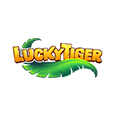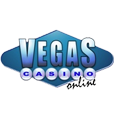Is it Legal to Gambline in Connecticut?
Gambling laws in Connecticut are more on the liberal side. In this state, known as the Constitution State, gambling is understood as “staking something of worth for a potential gain based on chance.” As for the approved types of gambling, the law permits licensed dog racing, licensed horse racing, jai alai, and the state lottery. It also validates gambling for social purposes and gambling activities of charitable organizations. Furthermore, large Indian casinos managed by the Mohegan and Pequot tribes are also legal under Connecticut law.
Today, we are going to break Connecticut gambling laws down to the smallest pieces and show you the best places to gamble around.
Top 3 Connecticut Online Casinos
Online Gambling in Connecticut
The State of Connecticut and the Department of Consumer Protection do not permit, authorize, license, or regulate online gambling in any form. Neither the state agencies nor the state legislature has approved any form of gambling on the web. So, even if a gambling website is legal in another jurisdiction, it’s illegal to use that site to gamble from Connecticut.
Having said that, there is no federal law that prohibits online gambling and no one has ever been prosecuted for doing so in Connecticut.
History of the Gambling Laws in Connecticut
Unlike some states in the US, Connecticut hasn’t gone through any drastic changes or amendments that pertain to the gambling industry throughout its history. In general, the state may be one of the more Liberal States, but you wouldn’t know it from their gambling laws. Tribal lands were exempted from the main State laws but, apart from that, all forms of gambling are illegal except “the state explicitly says otherwise.”
Below are several significant landmarks in the evolution of the gambling industry in Connecticut:
1983: Connecticut state lottery was formed.
1986: Foxwood opened a bingo hall.
1987: The US supreme court ruled that if a state prohibited all forms of gambling, then tribal gaming would have to shut down operations, too. But if the state legalized some forms of gambling, it couldn’t impose gambling laws on casinos located at Indian tribal land.
1988: Congress adopted the Indian Gaming Regulatory Act, which created a complex system to authorize and regulate the gaming and gambling enterprises of Indian tribes. The Mashantucket Pequots tried to form a compact with the state, but the state refused.
1990: The Mashantucket Pequots took legal action against the state for refusing to sign a compact. The US Congress required Connecticut to sign a good-faith negotiation deal with the tribe.
1992: The Mashantucket Pequot Tribe opened Foxwood Resort Casino. Table games were allowed, but not slot games. This establishment went on to become the world’s 2nd largest casino report, generating massive revenues and employing over 1,000 people.
1993: Foxwoods resort was given rights to operate slot machines.
1994: The Mohegan Tribe became federally recognized, and they negotiated a compact with the state. The Mashantucket Pequot tribe negotiated their slot machine contract with the state. The new deal prohibited not only slot machines but also any other casino game from being run anywhere else in the state.
1995: The Mashantucket Pequots tried to launch casino operations in Bridgeport, but the Senate rejected their bills.
1996: Mohegan Sun casino was opened.
2003: The “Las Vegas Nights” statue was revoked.
2008: Foxwoods had teamed up with MGM, and their partnership lasted until 2013.
2009: The tribes came to an agreement with the state regarding the issuance of coupons and email credits for free slot plays.
2012: The Governor stated that the state had to regulate online poker.
2015: The General Assembly passed SA 15-7, which made it possible for off-reservation casinos to be run by the Mashantucket Pequot and Mohegan tribes. The tribes would first have to form a coalition and then run the establishment from that business.
What Forms of Gambling Are Currently Legal in Connecticut?
Casino gaming: Two tribes currently operate in Connecticut. One is managed by the Mashantucket Pequots Tribe (Foxwoods), and the other by the Mohegan Tribe (Mohegan Sun). Although there are only two of them, these casinos are among the most prominent casino resorts in the world, making Connecticut a major east coast gambling destination. Outside of these establishments, games are not legal.
Sports betting: Connecticut residents are only allowed to bet on-track and at designed simulcast venues on Horses and Greyhounds. This is processed through either Pari-Mutuel or pooled betting terminals. Connecticut laws also allow betting on Frog and Duck races, but only for charity. Betting on Jai-Alai is also permitted. This game involves catching a ball in a special glove on a 3-walled court.
Lottery: A state-regulated lottery is available in Connecticut, and residents have access to national games like the Powerball.
Bingo Games: Several bingo games are allowed (outside of charity games) in Connecticut. These are aimed at the elderly citizens and involve games with prizes of $5 or under and cost $1 or less to enter. There is also provision for raffles and charity bingo games.
Where to Gamble in Connecticut?
Connecticut is home to two top-class tribal casinos — Mohegan Sun and Foxwoods. These gaming establishments generate well over $350 million in revenue for the state annually. Since the state has recently encountered budget problems, local lawmakers became more friendly-oriented towards expanding the local gambling industry and introducing iGaming-related regulations.
In March 2019, Connecticut’s two federally recognized tribes received much-anticipated approval from the federal government to proceed with plans for an off-reservation casino in East Windsor.
But for now, Connecticut residents will have to settle with two juggernaut gambling resorts — Foxwoods Resort Casino and Mohegan Sun Casino.
Foxwoods Resort Casino
Foxwoods Resort Casino is owned and operated by the Mashantucket Pequot Tribe. This elite gambling establishment features over 3,500 slot machines, video poker and video keno devices, as well as over 250 table games, including several varieties of blackjack, baccarat, Sic Bo, Craps, Pai Gow, and roulette.
Poker tables are also offered at Foxwoods, with the resort occasionally hosting top-tier poker tournaments that bring in professional players from around the world. That should come as no surprise, given its elite status among the global gambling community. In addition to the two-story arcade, this place boasts a vast Tanger Outlets Mall and a hotel consisting of over 2,000 rooms.
Around 15 years ago, both tribal casinos in Connecticut had a virtual gridlock on casino gambling in the Northeast, as they had no competition whatsoever. At the time, the two tribal casinos, along with Atlantic City casinos, were the only major casino destinations in the region. Over time, both Connecticut casinos have suffered a massive revenue drop. For that reason, the two tribes have decided to team up and open a new casino in East Windsor.
Mohegan Sun Casino
Mohegan Sun is owned and operated by the other Indian Tribe in the state — the Mohegan Tribe. Located on 1 Mohegan Sun Blvd, Uncasville, this casino has everything that Foxwoods does, and more. There are around 5,000 slot machines, over 300 table games, and 33 table poker rooms, all set in 300,000 square feet of the casino environment.
The table games section contains numerous variants of popular casino games like Craps, Baccarat, Blackjack, Roulette, Four Card Poker, and Wheel of Fortune. Mohegan Sun frequently runs all kinds of promotions, including massive cash prizes, give away cards, bad beat jackpots, and high hand bonuses in poker rooms.
Mohegan Sun has faced the same debt problems as Foxwoods. These two properties were always massive in size, and so they relied upon being the area’s premier destination casinos, as well as having virtually no competition in the region. They borrowed substantial amounts of money to expand operations, which they did successfully, but that was followed by revenues drop as a result of the recession.
They are slowly getting back on track, but it’s highly unlikely that the numbers will ever get back to where they were before the Great Recession. Nevertheless, Foxwoods and Mohegan Sun remained the top two gaming destinations in Connecticut.
FAQ
Is gambling legal in Connecticut?
Several forms of gambling are legal in Connecticut. These include casino games (only at tribal casinos), bingo games, lottery and sports betting (greyhound and horse racing).
What is the minimum gambling age in Connecticut?
The minimum gambling age for casino gaming is 21, and 18 for lottery, off-track betting, and parimutuel betting.
Is online gambling legal in Connecticut?
Connecticut has not legalized online gambling, but it is not illegal either. Residents can safely play at offshore sites that accept US citizens without having to fear any legal consequences.
Is live poker legal in Connecticut?
Yes, it is! Tribal casinos host some of the most prominent poker tournaments in the world, including World Poker Tour events.
Is roulette legal in Connecticut?
Yes, but only electronic versions of the game offered at tribal casinos.








